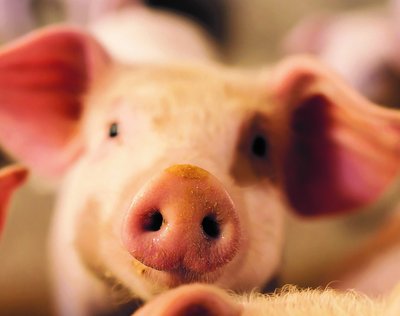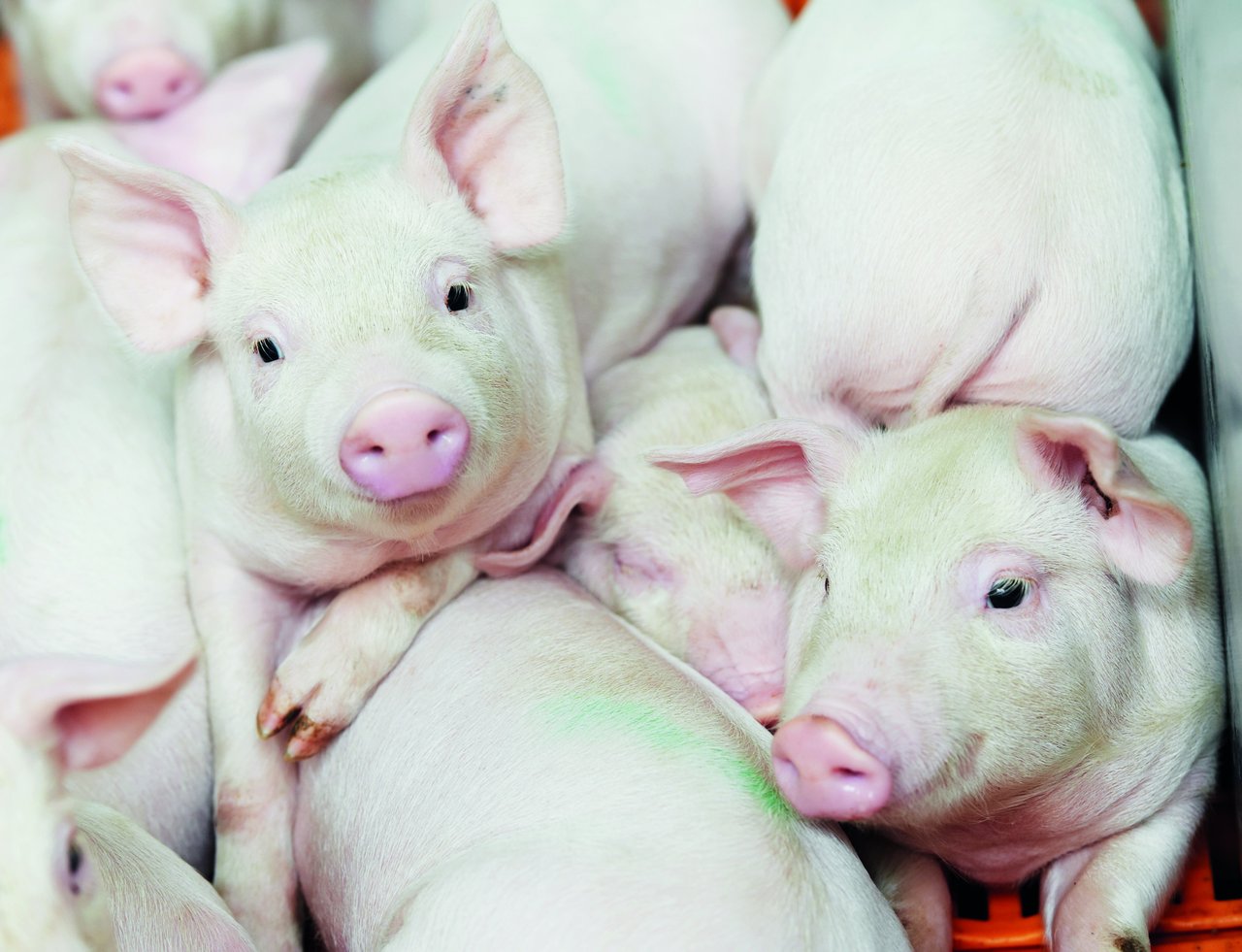Weaned piglets need special attention

A robust weaner is the key to successful pig production. However, piglets that are weaned early are exposed to numerous stress factors. These stresses, together with an immature digestive system, lead to changes in intestinal morphology, intestinal physiology and microbiota. As a direct consequence, reduced growth and increased diarrhoea can occur.
Weaned piglets have the problem of an incompletely developed digestive system due to their young age. The limited length of the intestinal villi leads to a suboptimal nutrient absorption. The change from sow's milk to solid feed leads to a further shortening (atrophy) of the villi. The insufficient production of gastric acid during this early stage of development leads to an incomplete activation of the digestive enzyme trypsin, which results in a poor protein digestion and also, causes an increased survival rate of pathogens. In addition, the enzyme activity in young animals has not yet reached its peak, which in turn leads to disturbed feed digestion.
The combination of these factors severely impairs the protein digestibility of weaning piglets: the less protein is absorbed in the small intestine, the more remains available for pathogenic bacteria such as Escherichia coli or Clostridium perfringens; both strains of bacteria are associated with the occurrence of post weaning diarrhoea (PWD).

A balanced fibre supply can counteract the widespread phenomenon of PWD: in order to support the development of a healthy piglet intestine, a safety feed is required which is rich in insoluble dietary fibre but as low as possible in soluble fibre content. Unlike insoluble dietary fibre, soluble fibre increases the water retention capacity, viscosity and residence time of the slurry in the intestine and reduces the digestibility of nutrients, thus creating ideal conditions for the reproduction of pathogenic bacteria in the intestinal tract.
A fibre source for a piglet safety feed must be insoluble in the small intestine but fermentable in the large intestine - both properties are combined in OptiCell®. As a concentrated insoluble fibre source, OptiCell® improves the natural intestinal peristalsis in weaning piglets, making it more difficult for pathogenic bacteria to colonize the small intestine. The fermentable yet insoluble fibre components support the development of a healthy intestinal flora and at the same time promote villi growth. Even in feeds with an unbalanced fibre profile, OptiCell® facilitates the transfer of soluble fibre components into the piglet's large intestine and thus counteracts the colonization of pathogens in the small intestine. The addition of OptiCell® in piglet feed thus serves as an efficient support against PWD.

